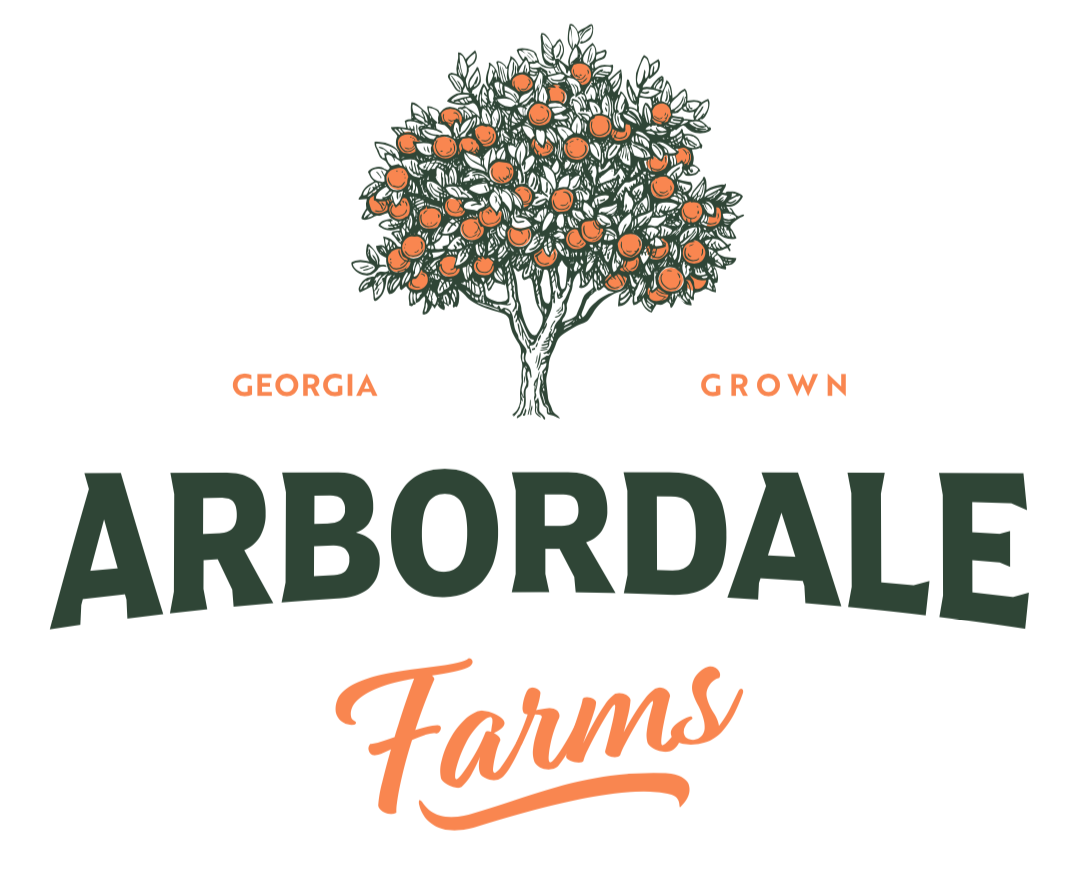For over 100 years, the Wade family has farmed the land we call Arbordale Farms.
“These fields have produced cotton and ears of corn. I’ve picked okra, shook peanuts, grown cane & processed it into syrup on this land. For over 80 years I’ve watched the farm thrive,” says Gene, a 3rd generation farmer. But now only one crop comes to life on the farm, and it’s a new commodity for Georgia growers.
“Growing citrus is different from row cropping,” explains Gene. “When I was coming up, this was considered a 4-horse farm. Each season we’d have to hook the plows up to the mules and work the ground one row at a time. In the mornings, we’d be in the field waiting for the first cracks of sunlight. There would be a break for lunch or a glass of chocolate milk, then we would work until it was dark or time to go to market.”
But with citrus, the workload is a little different. And the laborious aspects of the job now go to the younger members of the family. Once the initial trees are planted, citrus tree maintenance requires yearly pruning, tree by tree. A trained eye must keep check for pests, diseases, or other disorders which may affect a trees maturation, health, or fruit production.
“Caring for a citrus grove requires lots of love and patience,” says Lauren, granddaughter to Gene. “But when the fruit begins to color up in the fall, it all becomes worth the wait.”
January through March are the coldest months of the year in this part of South Georgia.
Temperatures must be closely monitored, and if they threaten to dip below freezing someone must be on the ground ready to winterize the trees. Winterization is achieved by focusing irrigation water on each tree and allowing a layer of ice to encapsulate the trunk. This keeps the internal temperature from dropping below 32 degrees so that the tree itself survives, though some leaf & limb dieback may occur.
Once the last freeze of the year has passed, pruning begins. “With thousands of trees to shape and trim by hand, there’s plenty to keep us busy until harvest begins in late fall,” says Lauren. “We’re currently growing 8 different varieties of citrus, and they each have different needs. I’m personally partial to our Tangos (but don’t tell the other trees that).”
Arbordale Farms grows four varieties of mandarins (Satsuma, Kishu, Tango, and Shiranui), two varieties of lemons (Meyer and Harvey), Cara Cara Navels and Ruby Red Grapefruit. All varieties are tree-ripened and hand-picked with great attention, love and care.
The Arbordale Farms name was proposed by Richard, son to Gene. “When I was very young we attended church at the corner of the dirt road, then called Arbordale Church of Christ. This little area was considered the Arbordale community,” recalls Pam, daughter to Gene.
“I remember how our whole neighborhood would gather together on Sundays,” said Gene.
“Even as a boy, the church was a cornerstone for our little community.”
“So, to us,” said Pam, smiling, “Arbordale feels like love and family, and we want our farm to carry those same feelings.”
